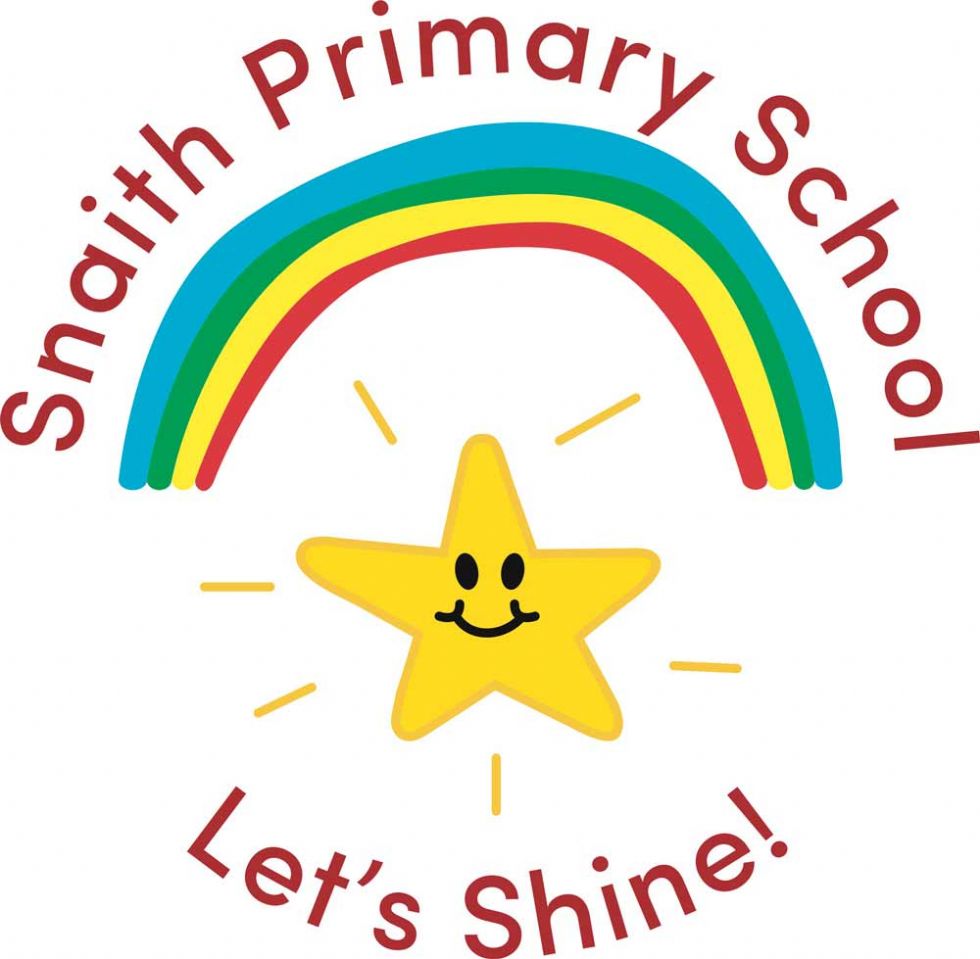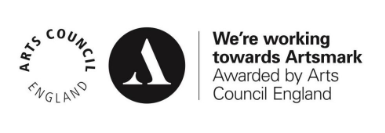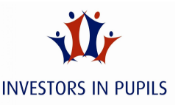SEND

SEND Information Report: Updated September 2024
All governing bodies of maintained schools and maintained nursery schools have a legal duty to publish information on their website about the implementation of the governing body’s or the proprietor’s policy for pupils with SEN. This information is updated annually.
At Snaith Primary School we value all members of our school community.
If you wish to speak to us about our local offer, please contact:
| Head Teacher: | Helen Calpin |
|---|---|
| Special Educational Needs Coordinator: | Lorraine Timney |
| SEN Governor: | Clare Donnison |
| Health Governor: | Melanie Ryan |
Code of Practice 6.79
"The governing bodies of maintained schools and maintained nursery schools and the proprietors of academy schools must publish information on their websites about the implementation of the governing body’s or the proprietor’s policy for pupils with SEN. The information published should be updated annually and any changes to the information occurring during the year should be updated as soon as possible. The information required is set out in the Special Educational Needs and Disability Regulations 2014"
What does Snaith Primary School Offer?
At Snaith Primary School we value all members of our school community. We believe everyone is important and deserves the best. Our school is a safe, friendly, creative place to learn where every individual can have fun and shine. We aim to offer excellence and choice to all our children, whatever their ability or needs. We have high expectations of all our children and aim to help children meet these expectations through the removal of barriers to learning and participation.
It is the aim of our school to:
- Provide a safe, secure environment where all children can feel happy and confident, develop independence and take pride in their work.
- Enable those with special educational needs to access a broad, balanced and creative curriculum through matching teaching and learning to individual needs, providing challenging and stimulating experiences for all children through quality first teaching.
- Ensure that all children develop a love of learning and achieve their full potential, recognising the valuable contribution that they can make throughout their lives.
If you wish to speak to us about our SEND offer, please contact:
Head Teacher: Helen Calpin
Special Educational Needs Coordinator: Lorraine Timney
SEN Governor: Clare Donnison
Health Governor: Melanie Ryan
The Kinds of SEN that are provided for:
We are experienced in meeting the needs of children with SEND across all areas of need: Communication and Interaction, Cognition and Learning, Social, Emotional and Mental health and Sensory and/or Physical. Children and young people with a wide range of SEN are welcomed into school. Supporting and developing children’s social and emotional needs is very important to us. We have deeply embedded systems in school which foster positive self-awareness and self-esteem.
All staff at Snaith Primary School are committed to providing quality first teaching so that all children can make good progress with their learning, whatever their starting point. Lessons are carefully differentiated to meet the needs of all children whatever their learning style. Staff use a variety of teaching styles and resources in lessons to support children’s learning while also fostering independence. The school places great importance on the fact that children learn in different ways. Where children require additional support this is provided in small groups to provide the support required while also encouraging interactions with peers and helping to develop independence and confidence. In occasional cases where children are unable to safely access school independently children may be supported on a 1;1 ratio to give greater supervision and support.
At Snaith Primary School we operate an ‘open door’ policy. Parents and carers are encouraged to speak with class teachers about concerns they may have. If you wish to discuss your child’s needs please telephone 01405 860452.
Admissions
All our children are assessed when they join our school so that we can build upon their prior learning. We use this information to provide starting points for the development of an appropriate curriculum for all the children. Discussions with parents and previous settings take place with the class teacher or Senco.
Policies for identifying children and young people with SEN and assessing their needs
Children’s academic, social and emotional development is tracked rigorously and reviewed regularly to make sure that they are making expected progress. When children enter primary school there are end of year group expectations to work towards. Not all children will be able to achieve these expectations, and so some additional support may be needed to help a child to make the expected progress required, regardless of their starting point on entry to our school.
At different times in their school life, a child or young person may have a special educational need. The Code of Practice 2015 defines SEN as follows:
“A child or young person has SEN if they have a learning difficulty or disability which calls for special education provision to be made for him or her. A child of compulsory school age or a young person has a learning difficulty or disability if he or she:
a. has a significantly greater difficulty in learning than the majority of others of the same age, or
b. has a disability which prevents or hinders him or her from making use of the facilities of a kind generally provided for others of the same age in mainstream schools or mainstream post-16 institutions.”
Where pupils’ progress is significantly slower than that of their peers, or fails their previous rate of progress, despite high-quality teaching targeted at a specific area of difficulty, it may be that the child has SEN. Information will be gathered, including seeking the views of parents and the pupil, as well as from teachers and assessments. Additional assessments may be carried out to assess specific needs and enable precisely targetted intervention. Additional assessments may include:
- Dyslexia screening
- Dyscalculia screening
- Social competencies profile,
- Boxall profile,
- Wellcomm speech and language assessment
- Fine and Gross motor skills assessments (including Beam movement screening)
- Sensory profile,
- Cognitive assessments
There can be many reasons for learners “falling behind”. These may include absences, attending lots of different schools, difficulties with speaking English, or worries that distract them from learning. The school understands that children who experience these barriers to learning are vulnerable. This does not mean that all vulnerable learners have SEN. Only those with a learning difficulty that requires special educational provision will be identified as having SEN.
Children who have been identified as needing additional support will have their targets recorded on a termly support plan, detailing their specific targets and outcomes, strategies being used to support the child in class and details of any targetted support or interventions for the individual. Children and parents are involved in the review of these targets at least termly, although plans may be reviewed more frequently where necessary. Parents and children will have the opportunity to discuss progress at informal liaison meetings, at review meetings and at the parent/teacher consultation evenings.
Some children may not make progress despite receiving additional support in school and from external agencies. In consultation with parents and other agencies, the school may decide to request a statutory Education, Health Care Assessment, which may lead to an Education Health Care Plan (EHCP) in order to provide the long-term support a child may need.
School is not the only organisation who can request a statutory assessment; parents can also make a request to the local education authority.
Arrangements for consulting parents of children with SEN and involving them in their child’s education
Regular contact with parents is really important to us at Snaith Primary School. All parents have the opportunity to discuss their desired outcomes for their child. Together with the class teacher and SENCO parents plan next steps in their child’s progress. These targets are regularly reviewed and Parent/Teacher consultation evenings, informal liaison meetings and at review meetings. For some children, regular communication takes place on a daily or weekly basis through contact with the class teacher or teaching assistant before or after school.
Our SEN policy is available to explain how children with SEN are identified in school.
The Families Information Service Hub (known as FISH) is available to offer free, impartial information for young people, parents and carers and professionals who have a role in supporting families. As part of this service, SENDIASS offers impartial, confidential information, advice and support for parents and carers of children and young people (aged 0-25) with special educational needs or disabilities.
They can be contacted on (01482)396469 or via email: sendiass@eastriding.gov.uk
Further information can be found on the FISH website.
Arrangements for assessing and reviewing children and young people’s progress towards outcomes
At Snaith Primary School Termly Support Plans and One Page Profiles are used for children with SEN in order to plan, summarise and monitor the impact of, the support that has been provided for a child over a period of time. The One Page Profile highlights individual strengths and achievements as well as noting how the child feels they can be best supported. Each child with SEN has a ‘silver file’ which will follow the child as they move on through school and details additional work and interventions that the child has been part of throughout their school life. Silver Files also contain communications with external professionals, meeting logs, notes on strategies which may not have been successful as well as noting the difference particular support has made to the child’s learning. Where children have been part of specific focussed interventions assessments and progress data will be recorded in the silver file and progress celebrated with children. Assessments which help monitor progress towards targets may include progress tests, Boxall profile, social competencies profile, Hero assessments etc. Hero assessments help us inform targets and next steps for children in area's of need.
Support Plans are reviewed at least termly in collaboration between children, class teachers, teaching assistants, parents and the SENCO. These may also be reviewed in interim periods if necessary and relevant to ensure the best outcomes for the child. For children with EHCP’s annual reviews are held following a holistic approach and involving the child, parents, school staff and any relevant external agencies. Where relevant, Interim review meetings may be held to request necessary changes to EHCP's.
Arrangements for supporting children and young people in moving between phases of education
Transition is a part of life for all learners, whether that involves moving to a new class or to a new school. We recognise that transition is an important time for all children, but especially so for a child with SEND. Consequently, we work closely with parents, children and staff to ensure these transitions run as smoothly as possible. At Snaith Primary School we are experienced in understanding and dealing with the implications of transition. Any transition process is started early, with a view to making it as smooth as possible for children. Transition booklets are provided to help prepare for moving between classes and social stories used where appropriate. We involve and liaise with outside agencies, children and parents to hold transition meetings to ensure that a child’s SEND provision is appropriate and consistent if joining mid-way through an academic year.
Planning for the transition to Secondary School will take place in the summer term according to individual need. Where necessary this may begin sooner. For children with Education, Health and Care Plans (EHCP) secondary schools will be invited to year 5 annual review meetings. Annual review meetings are also held to review progress towards targets and next steps. Staff may work with colleagues from other schools (in and out of the area) to facilitate a smooth transition for pupils.
The approach to teaching children and young people with SEN
At Snaith Primary School high-quality inclusive classroom-based teaching and learning strategies are used throughout the school for all pupils. In addition to this, we also offer a range of catch-up interventions and personalised support interventions across all areas of need. In line with shared desired outcomes, support interventions are carefully planned each term. The aims of these interventions are shared with pupils and parents through the child’s support plans and review meetings.
We are committed to developing the knowledge and skills of all staff to manage the challenges of the range of needs in school and to ensure that all support is of high quality. Staff have a wide range of expertise and receive regular training and support from a number of different agencies. Interventions are monitored carefully to ensure that they have the best impact on children’s learning. We are experienced at accelerating all children’s learning; closing the attainment gap and promoting children’s independence. Throughout school, we have a number of skilled staff who support both individual and groups of children. Although from time to time, children may need a high level of individual support, our aim is always to help children be more independent in lessons. Staff receive regular training in different areas of SEND.
Staff are experienced in personalising learning for all children. Strategies used for children with SEND are outlined on their Support Plans. Plans are completed at least termly, where necessary and appropriate in order to ensure that children receive the high level of support they require. Where required, some children may also have additional plans to work alongside their termly support plan including:
- intimate care plans
- personal risk assessments
-personal emergency evacuation plans
-reintegration plans
At Snaith Primary School we ensure that all pupils are equally valued by having equal and active access to a broad and balanced curriculum which is differentiated to meet individual needs and abilities. All children are encouraged to fully participate in the life of the school, accessing the curriculum and extra-curricular activities at their own level. We hold personal, social and emotional well-being at the heart of our ethos and are dedicated to supporting and facilitating the behavioural, social and emotional development of all children. We believe that it is important for all children to first feel happy and secure in order to make academic progress. We offer a range of interventions such as ELSA, Nurture Group, Socially Speaking, and Friendship groups to support children with these needs. Pupil's voice is extremely important to us; our pupils lead projects such as School Council and Young Leaders. Moral, social and cultural understanding and respect is strong throughout our school and bullying of any kind is not tolerated.
Opportunities for Enrichment
At Snaith Primary School we believe all learners are entitled to the same access to extra-curricular activities and are committed to making reasonable adjustments to ensure participation for all. Please contact us if your child has specific requirements for extra-curricular activities.
What should I do if think my child may have Special Educational Needs?
If you have any concerns regarding your child’s progress or well-being, then please speak to either your child’s class teacher or Miss Lorraine Timney (SENCO).
You can contact us via:
Telephone: 01405 860452
E-mail: snaith.senco@eastriding.gov.uk
Assessing the Impact of Intervention
The interventions used will be evidence based and those that are proven to make a difference for most learners.
A baseline assessment will take place at the beginning of an intervention – this will provide the point of reference for measuring progress made by the child – and a target outcome set. Regular reviews will take place to ensure that the intervention is having the intended effect. Should progress be less than anticipated, consideration will be given to adapting the frequency and/or intensity. Reviews will involve children and their parents or carers, as well as class teachers, and a record kept of agreed actions.
Where difficulties persist despite high-quality interventions and appropriate adjustments, advice and support may be requested from other professionals, with the parent’s consent. This might involve:
- Speech and Language Therapy Services,
- SaPTS (Sensory and Physical Teaching Service),
- Camhs,
- Occupational Therapy
- Advisory Support Teacher (SEMH team)
- Educational Psychologist
- Health services such as Paediatricians.
Where a child has an Education, Health and Care Plan (EHC), there will be an annual review held in addition to the termly review meetings, taking into account the views of the child, their parent or carer, and All other professionals involved with the child.
Have Your Say
This report details our annual offer to learners with SEND. There will be an annual consultation about the local offer and the SEN provision within our school.
If you have any comments or queries, please contact Miss Timney at Snaith Primary School.
Our school is committed to meeting the needs of all children, including those with SEND. We are fair, open and honest when dealing with any concern or complaint. Complaints and concerns about SEND provision are delt with in line with our complaints policy. We give careful consideration to all complaints and deal with them as swiftly as possible. We aim to resolve any complaint through dialogue and mutual understanding and, in all cases, put the interests of the child first.
- If you have a concern then please speak to a member of staff about it as soon as possible. Many issues can be resolved quickly by talking to your child's class teacher.
- If this does not resolve your concern, please make an appointment to see a member of our leadership team:
- SENCO (Miss Timney),
- Assistant head - Miss Todd
- Assistant head - Mr Pickering
- Headteacher - Mrs Calpin
Appointments can be made by phoning the school office on 01405 860452 or by emailing snaith.primary@eastriding.gov.uk
Our leadership team will seriously consider any such complaint and will investigate each case thoroughly. Most complaints are normally resolved at this stage.
For further information please see the complaints policy.







